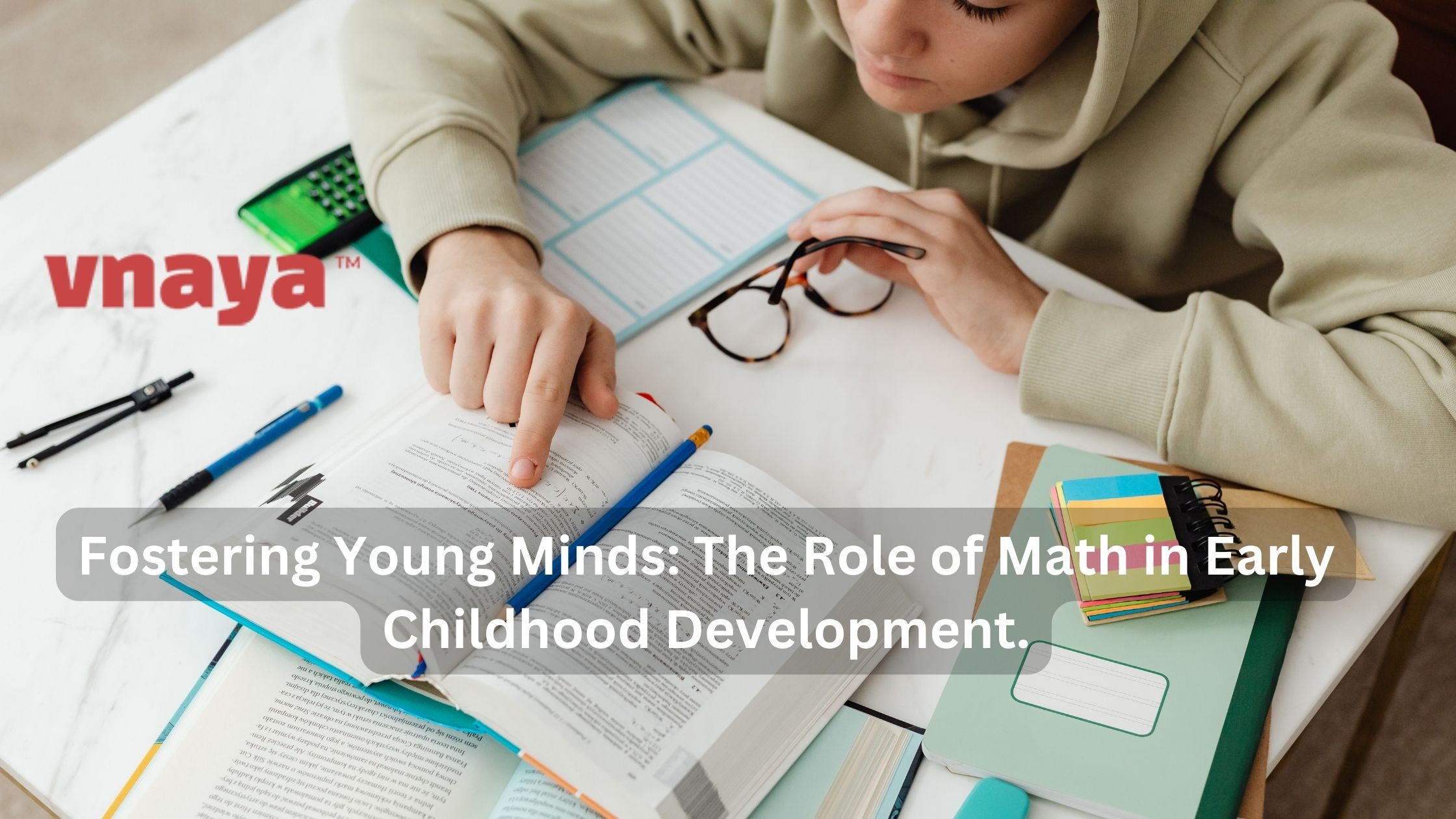Blog | Apr 13, 2023
Fostering Young Minds: The Role of Math in Early Childhood Development

As parents or tutors, we desire to deliver our kids the best feasible beginning in life. We understand that early childhood growth is essential for their future success, but occasionally it can be challenging to know where to commence. One province that frequently gets skipped is math. Many of us have a hostile relationship with mathematics from our school experience. And may not concede its role in child mental and social-emotional development. And this blog post brings out diverse ways mathematics can nurture immature minds, from building problem-solving skills to facilitating social interaction and self-confidence. By comprehending the significance of math in early childhood, we can help our children succeed and set them up for a lifetime of wisdom and success.
Apart from this, here's something! Can online math tutoring services help with premature development? Before diving into it, there are more concepts to be covered.
Why is Math Important in Early Childhood?
Math is more than simply numbers and equations; it is a way of reflection. Premature math knacks furnish a basis for problem-solving and vital thinking that are integral for success in school and later in life. Here are some fundamental reasons why math is imperative in early childhood development:
Builds essential cognitive skills
Early mathematics instruction enables children to formulate vital thinking, logic, and problem-solving skills. These mental skills are crucial for all areas of learning, not solely math.
Improves spatial sense
Spatial sense is the proficiency to envision and exploit entities in space. It is a skill in numerous areas, including science, engineering, and architecture. Early math education can assist children in evolving this skill. Besides, online math tutoring services can help children develop this skill for a lifetime.
Boosts logical thinking
Mathematics is equivalent to logical thinking. It is crucial for problem-solving and decision-making. Early math education helps children learn to think logically and make connections between ideas.
Supports language development
Being a language itself, Mathematics has its own symbols and terminology. Early math education can help children formulate language skills by orienting them to math-related vocabulary.
Provides a foundation for prospective learning
Early Mathematics education furnishes a basis for more intricate math concepts later in life. It can likewise help children develop a curiosity in Math, leading to future educational and career success.
How can parents and educators foster mathematical thought in youthful kids?
Now that we comprehend the significance of Math in early childhood development, how can we foster mathematical thought in immature children? Here are some valuable tips for parents and tutors:
Make Mathematics a stake in day-to-day life!
Mathematics is around us, and parents and tutors can utilize day-to-day situations to acquaint math concepts. For instance, counting entities, measuring components, and calculating change are all prospects to teach math skills.
Utilize games and puzzle activities
Young children understand best via play, so utilizing games and activities can make learning math fun and engaging. Games like I Spy and Simon Says can guide children's spatial reasoning skills, while puzzles and block play can expand problem-solving skills.
Foster exploration
Young children are inherently interested, and encouraging exploration can help them devise math skills. For instance, letting children sort entities by coloring or shape can teach them primary mathematics concepts.
Provide a sort of math materials
Having a variety of math materials obtainable can help children learn via hands-on exploration. Materials like blocks, pattern blocks, and counting bears can teach children about shapes, sizes, and numerals.
Model math thinking
Parents and tutors can model mathematical thinking by questioning and engaging children in discussions concerning math concepts. For instance, asking children to count how many things are in a jar can enable them to utilize problem-solving skills.
Online math tutoring services
Online math tutoring services deliver personalized attention and support to students who may be struggling with math. Plus, online math tutoring services can be more easygoing than standard in-person tutoring.
Math is an integral component of premature childhood development, providing a basis for problem-solving, critical thinking, and educational success. By fostering mathematical thought in youthful children, parents and tutors can help train them for forthcoming learning and career prospects.
Orienting math concepts via everyday conditions, games, and exploration can make learning math fun and entertaining for youthful children. Furnishing a variety of math materials and modeling mathematical thinking can likewise help children formulate fundamental math skills.
To be successful in life, it is important to invest time in Mathematics at a young age.
















Post a Comment: